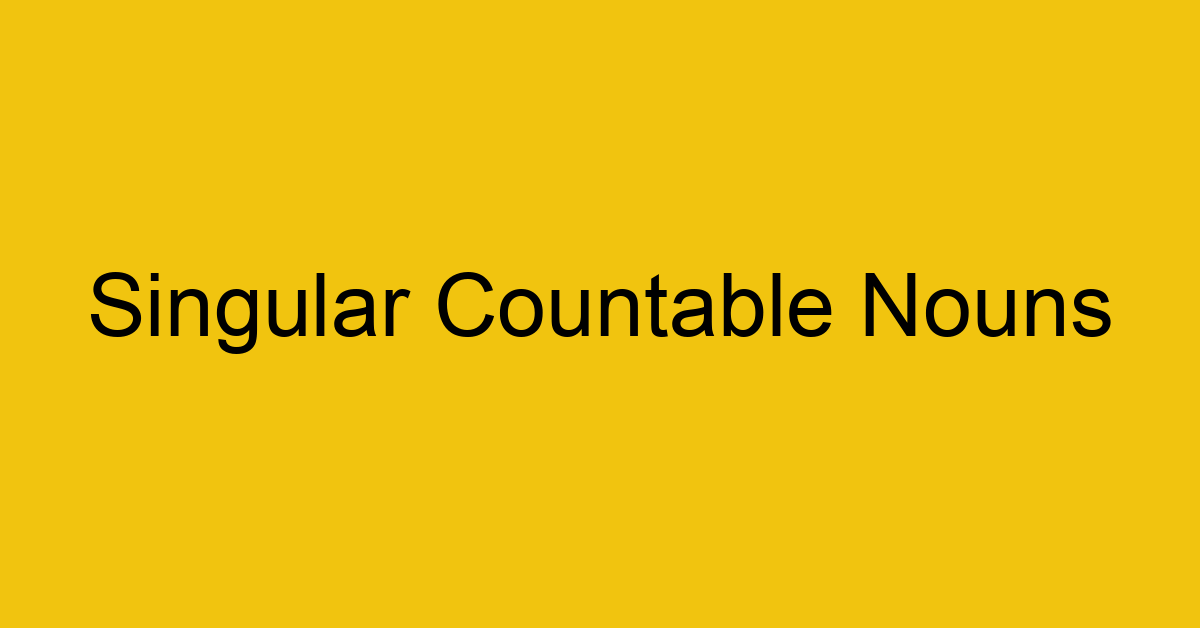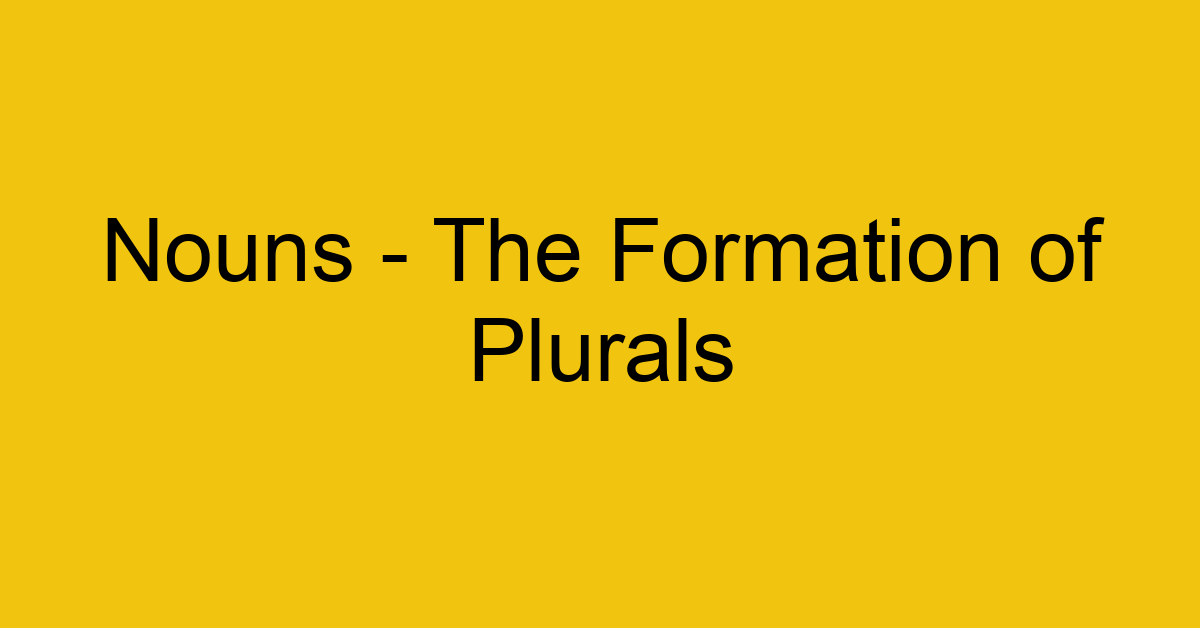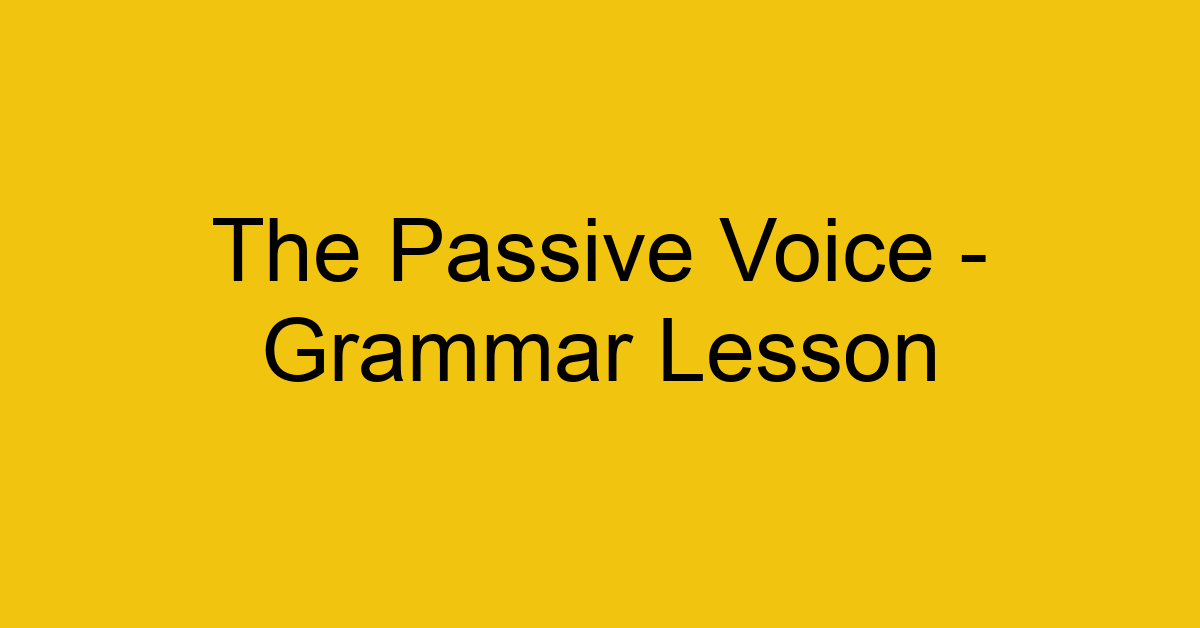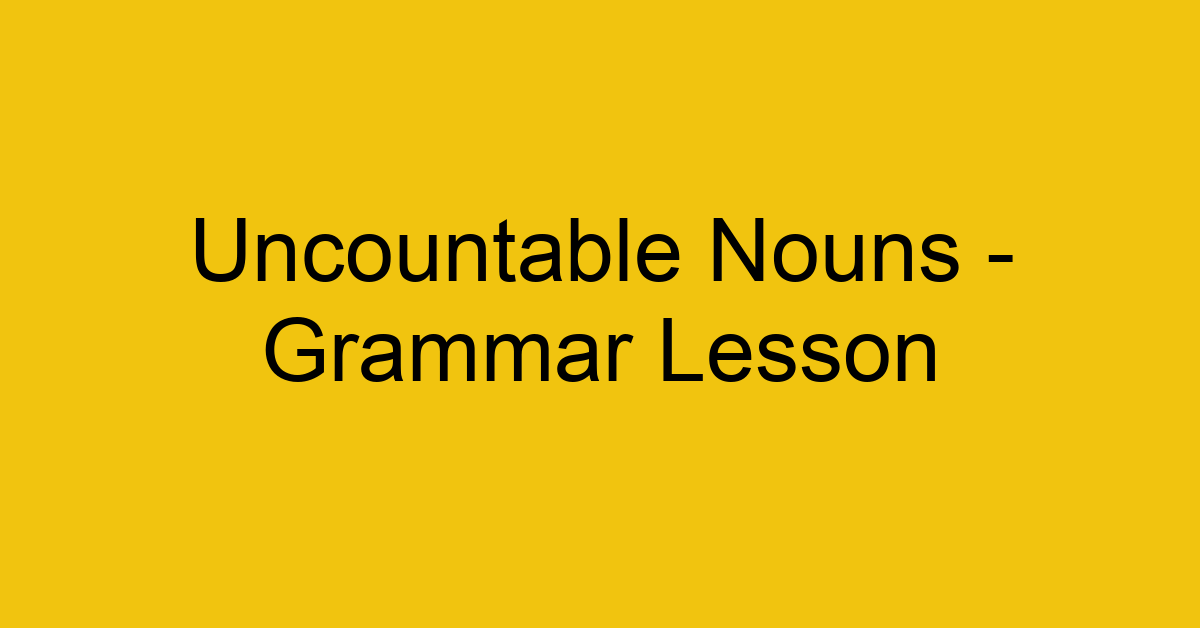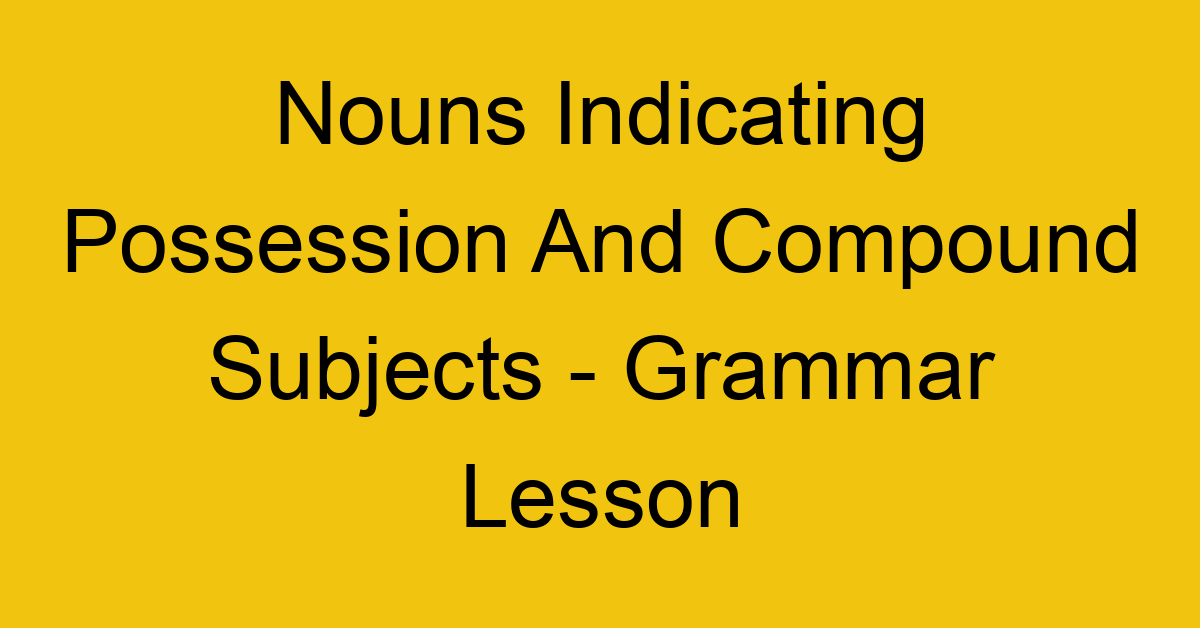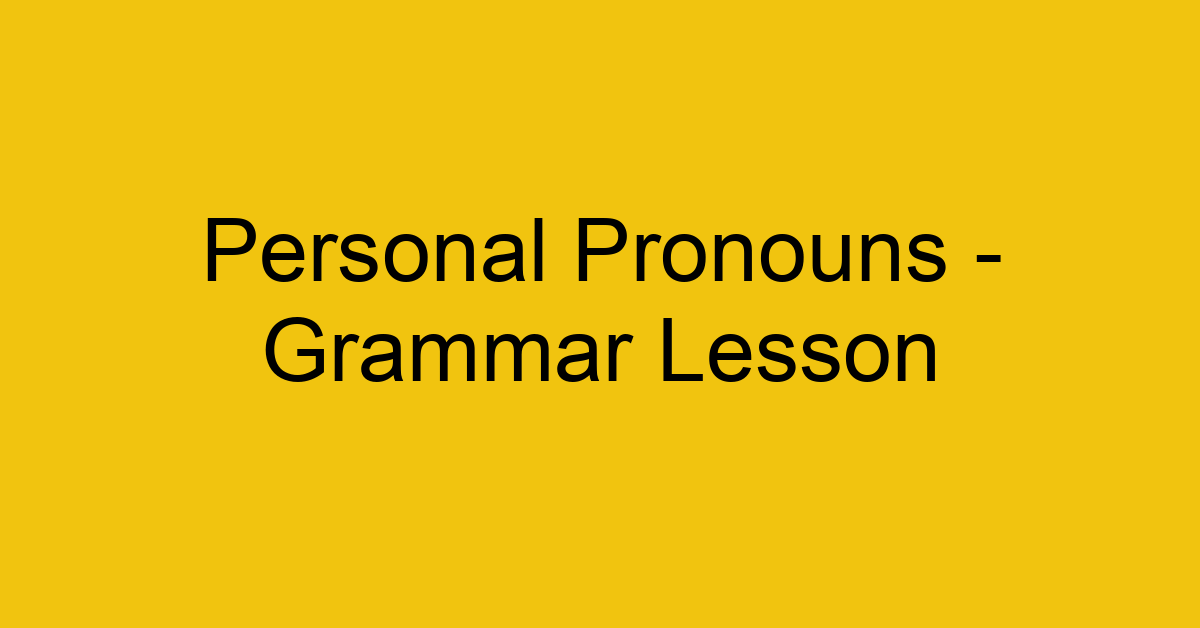CHAPTER 15. PLURAL COUNTABLE NOUNS
1. The absence of a determiner before plural countable nouns
The absence of a determiner before plural countable nouns generally has the same significance as the presence of a or an before singular countable nouns.
a. Making a general statement
When used in general statements, plural countable nouns are usually not preceded by determiners. The plural countable nouns in the following general statements are underlined.
e.g. Musicians must practise a great deal.
Newspapers can contain valuable information.
Larches are conifers.
A general idea can often be expressed either by means of a singular countable noun preceded by a or an, or by means of a plural countable noun not preceded by a determiner. For instance, in each of the following pairs of sentences, both sentences in the pair have the same meaning.
Musicians must practise a great deal.
A musician must practise a great deal.
Newspapers can contain valuable information.
A newspaper can contain valuable information.
Larches are conifers.
A larch is a conifer.
See Exercises 1, 2, 3 and 4.
b. Referring to something not mentioned before
Plural countable nouns are generally not preceded by a determiner when referring to something not mentioned before.
e.g. Branches blocked our path.
Clouds were gathering overhead.
Suddenly we saw buildings in front of us.
In these examples, the plural nouns branches, clouds and buildings are not preceded by determiners. It is assumed that the branches, clouds and buildings have not been referred to previously.
c. Naming a profession
When a sentence such as the following is used to name a profession practised by two or more people, the name of the profession is in the plural and is not preceded by a determiner.
e.g. They are doctors.
My friends are electricians.
We were chefs.
2. The use of The before plural countable nouns
a. Referring to something mentioned before
In general, the has the same meaning when used with plural countable nouns as when used with singular countable nouns. For instance, the is used with plural countable nouns when referring to something which has been mentioned before.
e.g. Fallen leaves covered the ground. The leaves rustled as we walked.
In the orchard were apples and pears. The apples were nearly ripe.
The doors opened, and students and teachers began leaving the building. The students were talking and laughing.
In these examples, the first time the words leaves, apples and students appear, they are not preceded by determiners, because the things referred to have not been mentioned previously. The second time the words leaves, apples and students appear, they are preceded by the, since the things referred to have already been mentioned.
See Exercise 5.
b. Referring to something when it is considered obvious what is meant
The is used with plural countable nouns when the speaker or writer considers it obvious which particular persons or things are meant.
e.g. The stars are shining brightly.
The roses are blooming.
We have put the children to bed.
I was sitting on the front steps.
These sentences give examples of the use of the to refer to things which are particularly important to the speaker or writer. The expression the stars usually refers to the stars which can be seen from the part of the earth where one lives. The expression the roses might refer to roses in one’s own garden, or to roses in which one feels a particular interest. The children might refer to one’s own children or to children for whom one is responsible. The front steps might refer to the front steps of one’s own house.
c. Names of nationalities
The is sometimes used with the name of a nationality in order to make a general statement about the people of that nationality. A plural verb must be used in such a statement.
When the name of a nationality ends in the sound of ch, s, sh or z, the name of the nationality must usually be preceded by the.
| Nationality | Example |
| French | The French are famous for their fine wines. |
| Irish | The Irish are known as poets and songwriters. |
When the name of a nationality does not end in the sound of ch, s, sh or z, the letter s must be added to the end of the name when it is used in a general statement. Names of nationalities to which s has been added are often used without being preceded by the.
| Nationality | Example |
| Argentinian | Argentinians like to eat beef. |
| Canadian | Canadians have a tradition of playing hockey. |
d. Adjectives referring to classes of people
Adjectives such as rich and poor can be used with the in order to refer to a group of people as a class. A plural verb must be used.
e.g. The blind attend special schools.
The poor do not own their own homes.
The rich often married for money.
In the above examples, the blind has the meaning of blind people, the poor has the meaning of poor people, and the rich has the meaning of rich people.
The following table summarizes the most important uses of the determiners a, an, and the with singular and plural countable nouns.
| Use | Singular Countable Nouns | Plural Countable Nouns |
| A weakened form of One | a/an | |
| Naming a profession | a/an | no determiner |
| Making a general statement | a/an | no determiner |
| Something not mentioned before | a/an | no determiner |
| Something referred to as a class | the | |
| Something mentioned before | the | the |
| When it is obvious what is meant | the | the |
| Nationalities ending in ch, se, sh | the | |
| Adjectives referring to classes of people | the |
See Exercise 6.
3. The use of The with proper nouns
a. Names of people
In English, names of people in the singular are not usually preceded by a determiner.
e.g. Washington was the first president of the United States.
Jack and Eleanor saw the movie.
Determiners are also usually not used when a title precedes a person’s name.
Doctor Defoe has a good reputation.
Mr. Carpenter is a friend of ours.
In these examples, the titles Doctor and Mr. are not preceded by determiners.
However, names of people in the plural are usually preceded by the.
e.g. The Smiths live in that house.
I have known the Harrisons for years.
b. Names of places
In English, the is usually used before the following types of place name:
Type of Place Name
canal
desert
ocean
river
sea
plural place names
place names containing the word of
The following are examples of names of canals, deserts, oceans, rivers, and seas:
e.g. the Panama Canal
the Mojave Desert
the Atlantic Ocean
the St. Lawrence River
the Beaufort Sea
The following are examples of plural place names:
e.g. the United States
the British Isles
the Great Lakes
the Rocky Mountains
The following are examples of place names containing the word of:
e.g. the Gulf of Mexico
the Cape of Good Hope
the Bay of Biscay
the Isle of Wight
Other types of place name are usually not preceded by determiners. For instance, determiners are usually not used before the following types of place name:
| Type of Place Name | Example |
| lake | Lake Superior |
| island | Manhattan Island |
| mountain | Mount Rainier |
| park | Yosemite National Park |
| city | Boston |
| street | Main Street |
| country | Canada |
| state | Kansas |
| province | Nova Scotia |
| county | Halifax County |
See Exercise 7.
4. Nouns used only in the plural
Some English nouns are usually used only in the plural. Such nouns take a plural verb, and generally have a plural form. For instance, the following nouns, which all refer to objects with two parts, are usually used only in the plural:
e.g. jeans
pajamas
pliers
scissors
If it is desired to refer to such objects individually, the expression pair of is often used.
e.g. a pair of jeans
a pair of pajamas
a pair of pliers
a pair of scissors
When the expression pair of is used as the subject of the verb, the verb must agree with the word pair.
e.g. Jeans are fashionable.
A pair of jeans is expensive.
Pliers are very useful.
A pair of pliers is often useful.
In the above examples, the nouns jeans and pliers take the plural verb are, and the noun pair takes the singular verb is.
See Exercise 8.
EXERCISES for Chapter 15
Exercise 1
Rewrite the following general statements using singular nouns. Make sure that the verbs agree with their subjects. For example:
Engineers must be familiar with computers.
An engineer must be familiar with computers.
Trees produce oxygen.
A tree produces oxygen.
- Automobiles should be kept in good repair.
- Bats locate insects by means of sonar.
- Diplomats should, if possible, be multilingual.
- Hats are useful in cold weather.
- Physicists must study a great deal.
- Elephants can be dangerous.
Exercise 2
Rewrite the following general statements using plural nouns. Make sure that the verbs agree with their subjects. For example:
A bicycle is a convenient means of transportation.
Bicycles are a convenient means of transportation.
A secretary should be proficient in spelling and grammar.
Secretaries should be proficient in spelling and grammar.
- A sportsman needs to remain calm under pressure.
- An eagle has good eyesight.
- A conference requires careful planning.
- A rock is composed of minerals.
- A potato is rich in starch.
- An omelette is made of eggs and other ingredients.
Exercise 3
Rewrite the following general statements using singular nouns. Make sure that the verbs agree with their subjects. For example:
Frogs are amphibians.
A frog is an amphibian.
Wrenches are tools.
A wrench is a tool.
- Pines are evergreens.
- Otters are mammals.
- Computers are machines.
- Crabs are crustaceans.
- Crickets are insects.
- Oaks are hardwoods.
Exercise 4
Rewrite the following general statements using plural nouns. Make sure that the verbs agree with their subjects. For example:
A robin is a bird.
Robins are birds.
A refrigerator is an appliance.
Refrigerators are appliances.
- A schooner is a ship.
- A mallard is a duck.
- A rhododendron is a bush.
- A beech is a tree.
- A kangaroo is a marsupial.
- An emerald is a gem.
Exercise 5
Paying attention to whether the people and things referred to have been mentioned previously, fill in each blank with a, an or the, or leave the blank empty if no determiner is required.
I once had the chance to see ___ Chinese opera. It was very exciting. As well as ___ singers, there were ___ dancers and ___ acrobats. ___ acrobats staged ___ fights. During ___ fights, some of ___ acrobats wielded ___ swords, and others leaped over ___ swords. Many of ___ dancers carried scarves. ___ dancers ___ flourished ___ scarves to make ____ patterns in the air.
Behind ___ screen was a group of ___ musicians. ___ musicians played various oriental instruments. ___ instruments included ___ drums, ___ cymbals, ___ flutes and ___ gong. ___ flutes usually played the melody, and ___ gong was sounded at particularly exciting moments.
Of course there were ___ hero and ___ heroine. ___ hero had to rescue ___ heroine from ___ magician. ___ hero and ___ heroine had both proved their courage by the end of ___ opera.
Exercise 6
Fill in each blank with the or leave it empty, as appropriate. Be prepared to justify your choices. For example:
Those participants are ____ lawyers.
Those participants are lawyers.
____ eagles are birds of prey.
Eagles are birds of prey.
___ deaf have their own language.
The deaf have their own language.
___ Dutch are members of the European Union.
The Dutch are members of the European Union.
____ planets circle the sun.
The planets circle the sun.
- ____ English have a reputation for being animal lovers.
- ____ wounded were treated immediately.
- His friends are ____ scientists.
- ____ crows are black.
- ____ stars are covered by clouds.
- ____ French make excellent pastries.
- Two of the women are ____ reporters.
- ____ turtles are reptiles.
- ____ wealthy generally have a good knowledge of finance.
- ____ Americans like to watch television.
- They are ____ businessmen.
Exercise 7
Paying attention to the rules for the use of the with proper nouns, fill in the blanks with the or leave them empty, as appropriate. For example:
___ Rick is one of ___ Smiths who live on our street.
Rick is one of the Smiths who live on our street.
___ Channel Islands lie south of ___ England.
The Channel Islands lie south of England.
___ Rhine River flows through ___ Lake Constance.
The Rhine River flows through Lake Constance.
____ Isle of Man lies in ____ Irish Sea.
The Isle of Man lies in the Irish Sea.
Part of ___ New York City is situated on ___ Long Island.
Part of New York City is situated on Long Island.
- ____ Hawaiian Islands are in the middle of ____ Pacific Ocean.
- ____ Salt Lake City is the capital of Utah.
- ____ London lies on ____ Thames River.
- ____ Suez Canal connects ____ Mediterranean Sea with Red Sea.
- ____ Lake Huron and ____ Lake Erie are two of ____ Great Lakes.
- ____ Calcutta lies north of ____ Bay of Bengal.
- ____ North Sea separates British Isles from ____ Norway and ____ Denmark.
- ____ Bay of Biscay lies to the west of ____ France.
- ____ Orkney Islands are in the north of ____ Scotland.
- ____ Anticosti Island lies in ____ Gulf of St. Lawrence.
- Part of ____ Sahara Desert lies in ____ Algeria.
- ____ Gerry, one of ____ Johnsons, lives on ____ Belleview Street.
- ____ Mount Kilimanjaro is south-east of ____ Lake Victoria.
- ____ Vancouver Island lies off the west coast of ____ Canada.
- ____ Serengeti National Park lies in ____ Tanzania.
Exercise 8
Paying attention to whether a singular or plural verb should be used, complete each of the following sentences by filling in the blank with is or are. For example:
My scissors ___ very sharp.
My scissors are very sharp.
One pair of scissors __ not enough for the whole class.
One pair of scissors is not enough for the whole class.
Five pairs of scissors ___ sufficient for a small class.
Five pairs of scissors are sufficient for a small class.
- Her jeans ______ white.
- Only one pair of jeans ______ clean.
- Three pairs of jeans ______ being washed.
- A good pair of pliers ______ handy for repairing a bicycle.
- His pliers ______ equipped with a sharp edge for cutting wire.
- Several pairs of pliers ______ on sale.
ANSWERS TO THE EXERCISES for Chapter 15
Answers to Exercise 1:
- An automobile should be kept 2. A bat locates 3. A diplomat should be 4. A hat is 5. A physicist must study 6. An elephant can be
Answers to Exercise 2:
- Sportsmen need 2. Eagles have 3. Conferences require 4. Rocks are composed 5. Potatoes are 6. Omelettes are made
Answers to Exercise 3:
- A pine is an evergreen. 2. An otter is a mammal. 3. A computer is a machine. 4. A crab is a crustacean. 5. A cricket is an insect. 6. An oak is a hardwood.
Answers to Exercise 4:
- Schooners are ships. 2. Mallards are ducks. 3. Rhododendrons are bushes. 4. Beeches are trees. 5. Kangaroos are marsupials. 6. Emeralds are gems.
Answers to Exercise 5:
a Chinese opera. __ singers, __ dancers, __ acrobats. The acrobats, __ fights. the fights, the acrobats, __ swords, the swords, the dancers, __ scarves. The dancers, the scarves, __ patterns. a screen, __ musicians. The musicians. The instruments, __ drums, cymbals, __ flutes, a gong. The flutes, the gong. a hero, a heroine. The hero, the heroine, a magician. The hero, the heroine the opera.
Answers to Exercise 6:
- The [nationality ending in sh] 2. The [considered as a class] 3. __ [a profession] 4. __ [general statement] 5. The [obvious what is meant] 6. The [nationality ending in ch] 7. __ [profession] 8. __ [general statement] 9. The [considered as a class] 10. __ [nationality not ending in ch, se or sh] 11. __ [profession]
Answers to Exercise 7:
1. The Hawaiian Islands, the Pacific Ocean 2. __ Salt Lake City, __ Utah 3. __ London, the Thames River 4. The Suez Canal, the Mediterranean Sea, the Red Sea 5. __ Lake Huron. __ Lake Erie, the Great Lakes 6. __ Calcutta, the Bay of Bengal 7. The North Sea, the British Isles, __ Norway, __ Denmark 8. The Bay of Biscay, __ France 9. The Orkney Islands, __ Scotland 10. __ Anticosti Island the Gulf of St. Lawrence 11. the Sahara Desert, __ Algeria 12. __ Gerry, the Johnsons, __ Belleview Street 13. __ Mount Kilimanjaro, __ Lake Victoria 14. __ Vancouver Island, __ Canada 15. __ Serengeti National Park, __ Tanzania
Answers to Exercise 8:
- are 2. is 3. are 4. is 5. are 6. are
